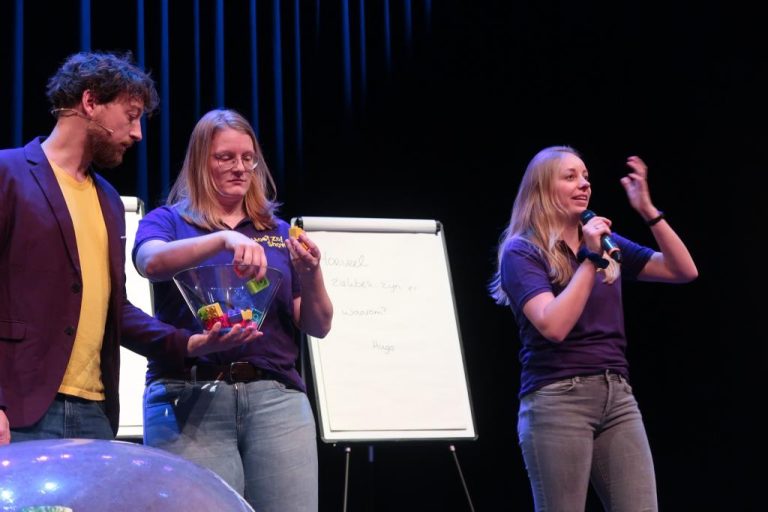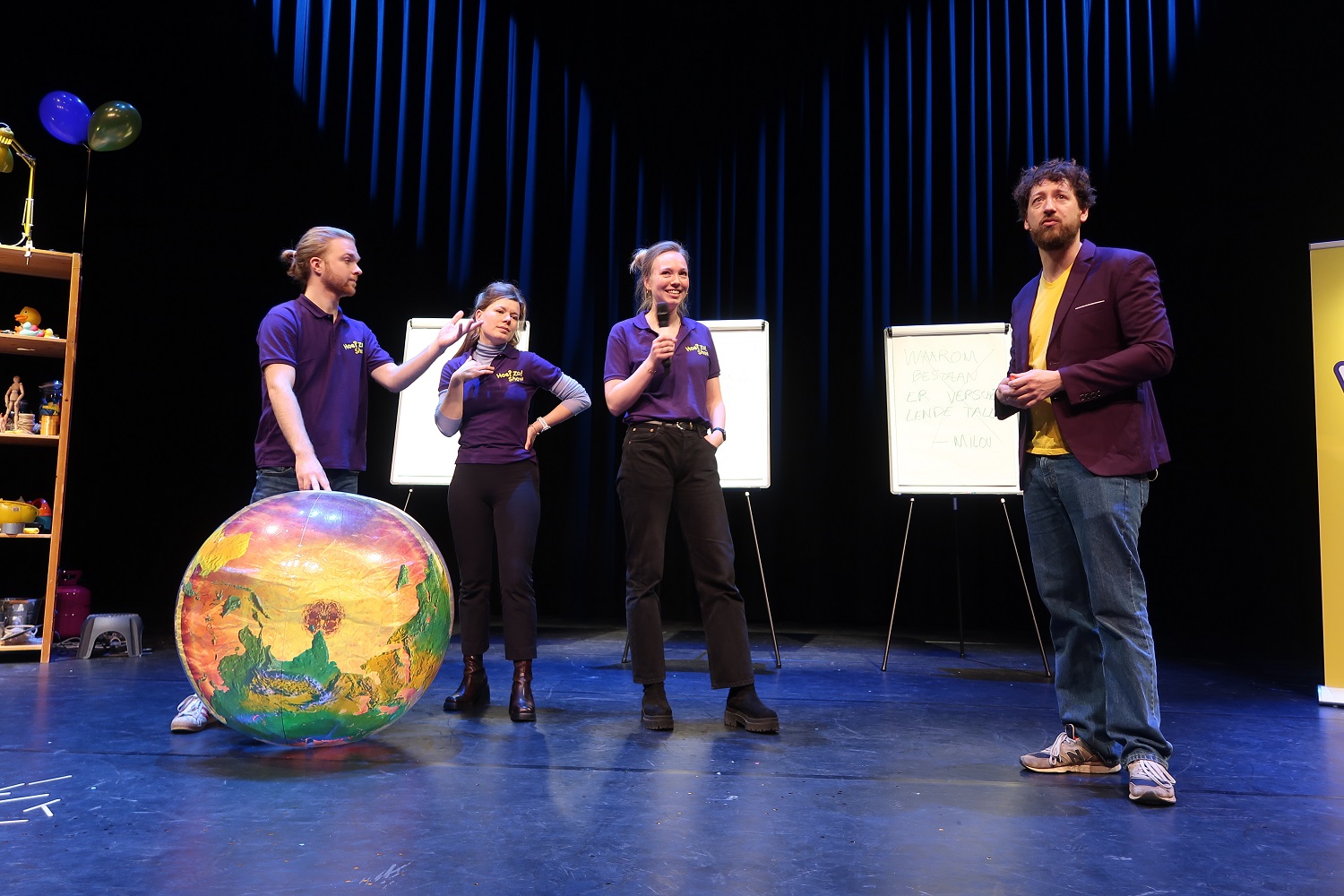What possesses PhD candidates to perform in a theatre for school children in a provincial town? “Man, it’s the best thing about my whole PhD,” says Ruben Boot.
Ruben Boot (left) loves to join in at the kids' science show Hoe?Zo! (Photo: Hoe?Zo! Show)
The Hoe?Zo! Show, roughly translated as the How?Like this! Show, is travelling the country from Alphen aan de Rijn to Zaltbommel, from February to April. It is avoiding the university towns, where children have enough opportunities to come into contact with scientists. Apart from the presenter Boy Vissers (experimenter for Quest, a Dutch popular science magazine), four or five PhD candidates from a group of 15 will be on stage.
For the children in the audience (from group six, around 10 years old), the theatre piece is a celebratory end to four lessons on the basic principles of science, such as working systematically and the importance of open questions. The first group enters the theatre at 9:30, and there are often two performances.
By asking questions about cycling in the rain, smelly farts and burning foam, Boy Vissers always gets the attention of the young audience. During the introduction round, the four PhD candidates give a two minute pitch about their research.
For the two TU Delft PhD candidates, the subject is about nano biology (Faculty of Applied Sciences, AS). Céline Cleij is researching the existence of life by working – with a lot of others – on an artificial living cell. Ruben Boot is researching the mechanics of metastatic cells (tumour cells that spread through the body).
Questions
Why does glue stick to paper but not to a bottle? Why is water liquid? Why are soap bubbles round? Why are there so many different languages in the world? Why do we exist? These are just some of the questions that were asked during the last performance.
Thanks to their diverse backgrounds (astronomy, genetics, psychology, geology, biophysics), the panel members can answer most of the children’s questions. Most of the questions are spontaneous, some were submitted as the most important question in the class.
The PhD candidates have a few minutes to read up on the subject on an iPad and to choose an item from an on-stage cupboard to help them answer the question.
The PhD candidates must answer at least five of the six questions correctly. If they are unable to do so, their punishment is to dance. “We always end by dancing,” laughs Ruben.
(text continues below photo)

Céline Cleij on the microphone (Photo: Hoe?Zo! Show)
Motivation
PhD candidates are always working on their research and learning. Why should they do this as well? Mostly because they have heard of it and they really enjoy joining in. “It’s the best thing about my whole Doctoral Programme,” says Ruben. “I have always been passionate about scientific communication, and I have been on stage before. The Hoe?Zo! Show brings everything together.”
For Céline, the main motivating factor is encouraging curiosity. “I could ask my father anything when I was a child. He is a chemist. I could ask about mountains and nature and he would usually be able to tell a story about them. I would like children to be interested in science and to encourage them to come up with questions, just as I always did.”
- One of the shows will also be open to adults: on 26 March at Tivoli in Utrecht. For more information see the Hoe?Zo! Show website.
- Apart from its name, the Hoe?Zo! Show is not related to the similarly named Teleac radio and television activities of nearly 20 years ago.
Do you have a question or comment about this article?
j.w.wassink@tudelft.nl


Comments are closed.